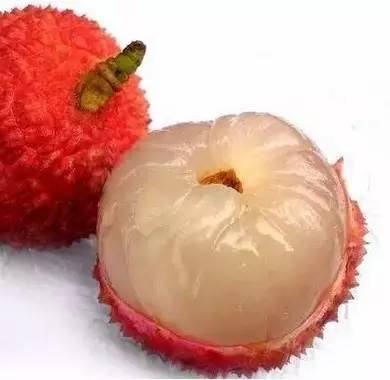Source: Health Times (ID: jksb2013)
Fruits are beneficial, but if not consumed correctly, they can harm health! Some fruits, when eaten excessively, can cause symptoms like toothache, red and swollen eyes, and mouth sores; others can lead to stomach discomfort and diarrhea, disrupting digestive function.
In fact, no matter how good the fruit is, eating it incorrectly can be detrimental! This is because fruits also have cold and hot properties. For example, the saying “Peaches nourish, apricots harm, and plums buried under trees cause death” relates to the cold and hot nature of fruits. “Plums and apricots” are considered cold fruits, and excessive consumption can lead to stomach cold. If individuals with stomach cold or cold constitution eat too many of these cold fruits, their bodies often cannot handle it, leading to diarrhea and other health issues.
Fruits are classified as cold or hot; remember the list!
Fruits are mainly divided into three categories: cold, warm, and hot.
Cold fruits: Watermelon, mangosteen, cantaloupe, pear, banana, kiwi, persimmon, banana, kiwi, sweet melon, coconut, cherry tomato, etc.
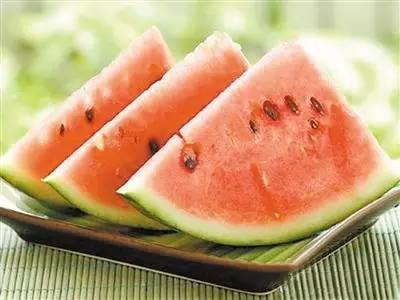
Warm fruits: Apple, grape, sugarcane, passion fruit, lemon, guava, pineapple, papaya, olive, pineapple, mango, etc.
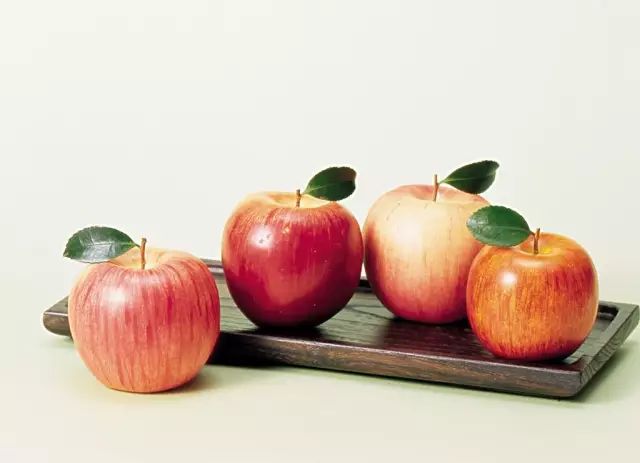
Hot fruits: Lychee, peach, longan, cherry, jujube, durian, papaya, orange, tangerine, etc.
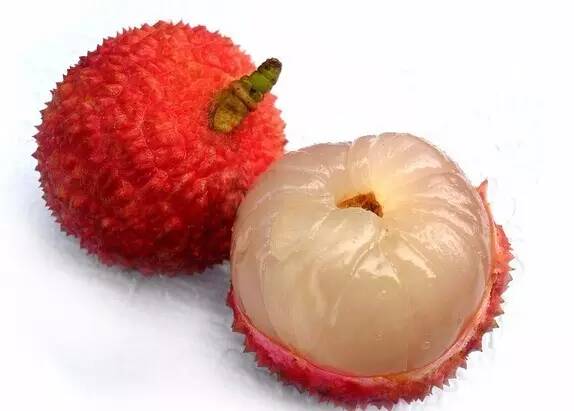
Choose fruits based on constitution
Cold fruits: Clear heat and dryness
Cold fruits are considered to have a cooling effect, helping to clear heat and dryness, and are effective for symptoms of excess heat such as red face, red eyes, swollen gums, dry mouth, short and red urination, constipation, and red tongue with yellow dry coating.
Suitable for: Excess heat constitution
Generally, individuals with excess heat constitution have a vigorous metabolism in summer, with sympathetic nervous system dominance, sweating a lot, often having a flushed face, dry mouth, irritability, and constipation, and they particularly enjoy eating cool foods in summer.
Additionally, elderly individuals and children with poor digestive function should avoid cold fruits; if they really want to eat them, they can have a small amount after lunch or before dinner, but not excessively.
Warm fruits: Most nourishing
Warm fruits are relatively mild and suitable for most people. Generally, warm fruits can be consumed in larger quantities.
Suitable for: All constitutions
Warm fruits are gentle, and both cold and hot constitution individuals can eat them without severe reactions; these fruits are suitable for everyone.
Hot fruits: Nourish cold deficiency
This type of fruit has warming and nourishing effects, dispelling cold and replenishing deficiency, increasing body heat, and promoting energy metabolism.

Suitable for: Cold deficiency constitution
For individuals with cold deficiency constitution, they often have qi deficiency and spleen deficiency, low basal metabolic rate, and produce little heat, with cold extremities even in summer.
In comparison, these individuals tend to have paler complexions and rarely feel thirsty, and they do not like to be exposed to cool things, including air-conditioned rooms. Therefore, consuming more warm fruits is undoubtedly a great way to replenish cold.
Healthy fruit consumption: 6 key points to remember
1. Control the quantity
No matter the type of fruit, quantity should be controlled: excessive intake of cold fruits can cause stomach cold and diarrhea; hot fruits can easily lead to excess heat; even warm fruits, if consumed excessively, can lead to nutritional imbalance. The stomach has a limited capacity, and excessive fruit intake can lead to lower intake of staple foods, proteins, and other nutrients.
For example: do not eat more than 3 oranges a day; adults should ideally not consume more than half a kilogram of cherries a day; mangoes are hot and should not be eaten in excess, 1-2 at a time is sufficient.
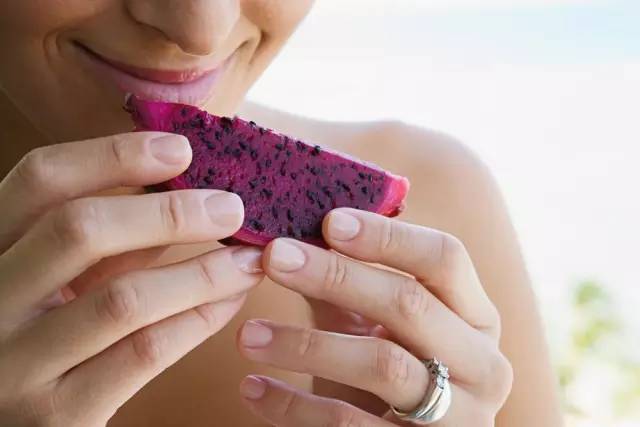
2. Pay attention to fruit combinations
Fruits can also be combined based on their cold and hot properties; for example, if durian causes excess heat, the best way is to pair it with mangosteen. Mangosteen is known as the “queen of fruits” and is characterized by its ability to clear heat and reduce fire; Thais often have a habit of eating mangosteen after durian.
3. Be mindful of how you eat
For example: when eating lychee, it is best to prepare a small bowl of light saltwater, soak the peeled lychee in saltwater before eating to help reduce heat; additionally, pineapple should also be soaked in saltwater for half an hour before consumption.
4. Eat according to constitution
Individuals with excess heat constitution should eat more cold fruits; individuals with cold deficiency constitution should pay attention to eating more warm fruits.

5. Avoid cold fruits if you have stomach issues
According to Jin Xiaojing from the Gastroenterology Department of Nanjing Traditional Chinese Medicine Hospital, many patients with stomach issues or stomach pain should actually eat less cold foods; not only should cold drinks and cold dishes be limited, but also cold fruits should not be consumed excessively. Currently, most cases of fruit-related issues are due to cold symptoms. Each fruit has different cold and hot properties, and many people already have cold symptoms; eating too many cold fruits can worsen their condition, such as stomach issues or worsening coughs.
6. Limit hot fruits if you have inflammation
Of course, some individuals have heat symptoms; if they consume hot fruits, it can exacerbate their condition. The most common cases are tonsillitis and pharyngitis patients, who often have yin deficiency and excess heat, so they may enjoy eating fruits. However, if they eat hot fruits like lychee, it can worsen their excess heat, making them feel worse. If they already have “fire” and eat more, it is like adding fuel to the fire!
Different fruits require different selection methodsWatermelon
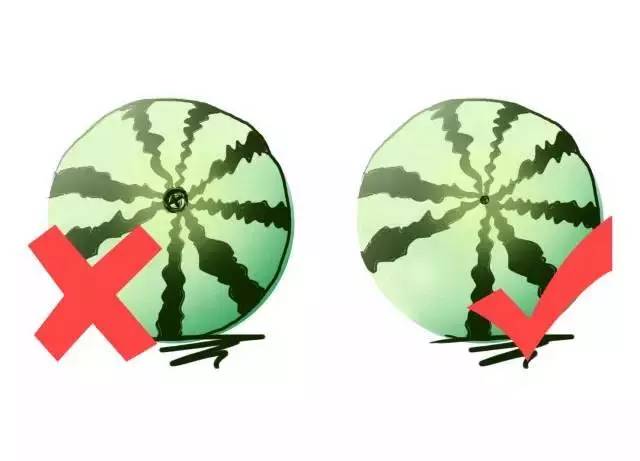
The larger the bottom circle, the thicker the skin!
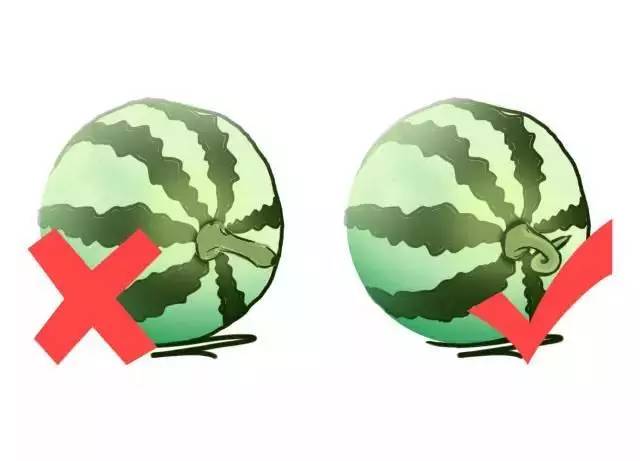
The curled stem tip is sweeter!
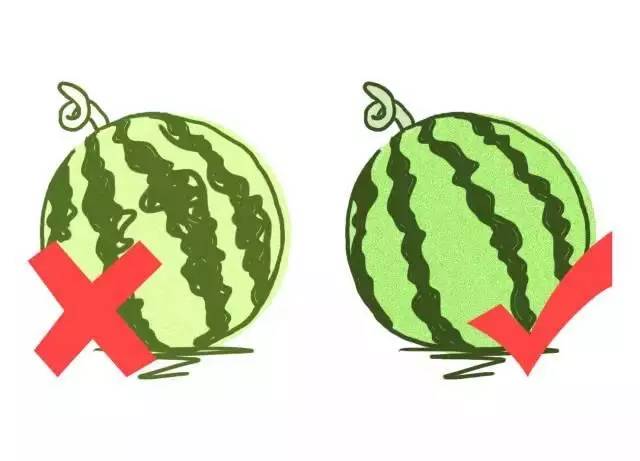
Green is better than cloudy white!
Clear patterns indicate a good melon!
Mangosteen
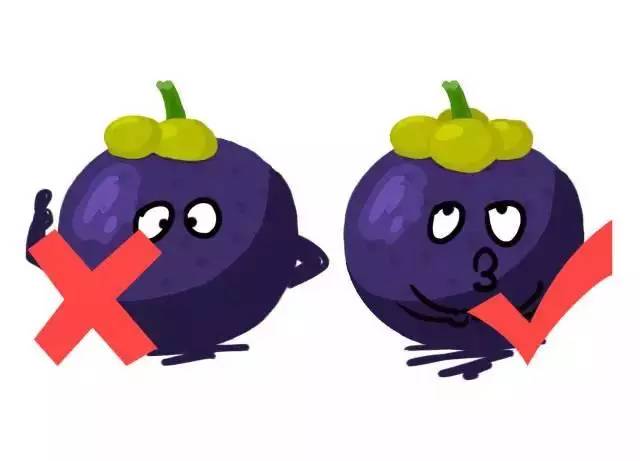
The number of segments on the bottom indicates the number of segments in the fruit,
more segments mean smaller seeds!
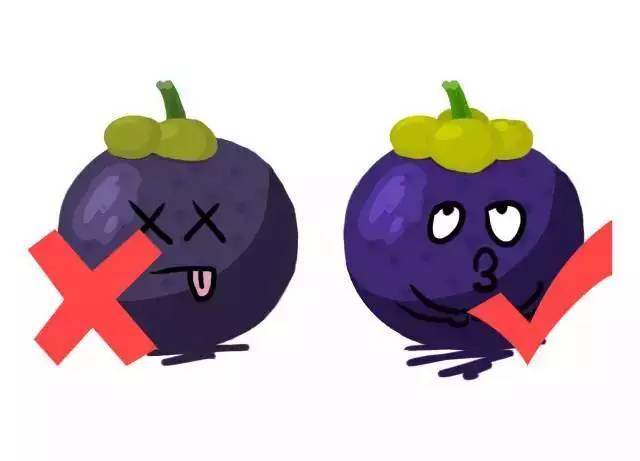
Freshness is indicated by a green stem!
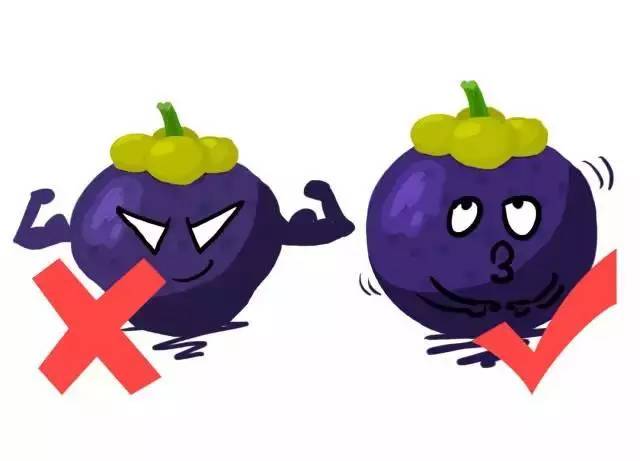
Soft to the touch is better than hard!
Peach
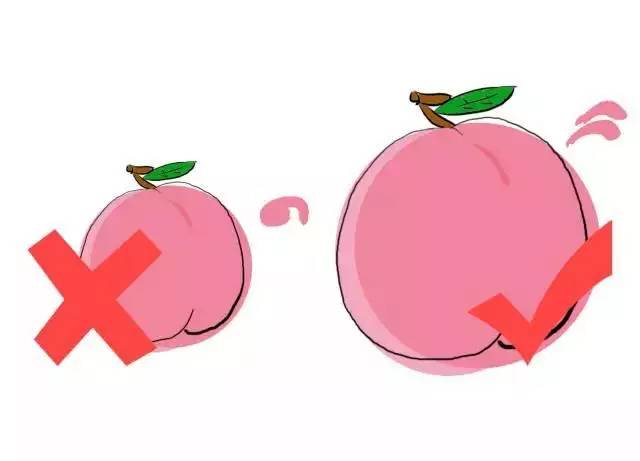
A large and plump fruit is flavorful and juicy!
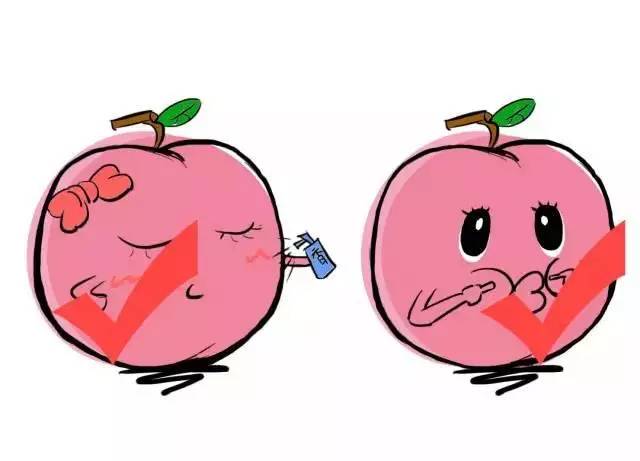
Fruits that smell fragrant are sweeter!
Soft to the touch indicates perfect ripeness~
Lychee

The shell should be cracked and flat,
with visible seams indicating high ripeness~

Fruits that smell like wine,
or have a sour smell indicate they are no longer fresh~

Fruits with translucent flesh are fresher!
Dragon Fruit

Avoid skinny ones! The fatter they are, the more mature they are!
Orange

Fruits of equal size and weight are good,
hard ones are better than soft ones!
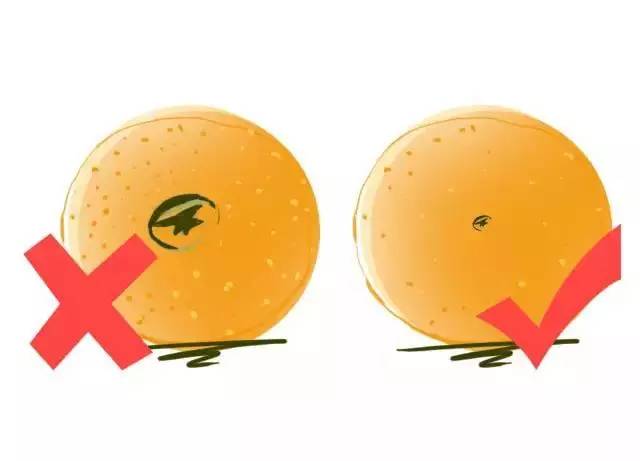
Fruits with large pores have thick skin,
those with small navels have better taste!
Papaya
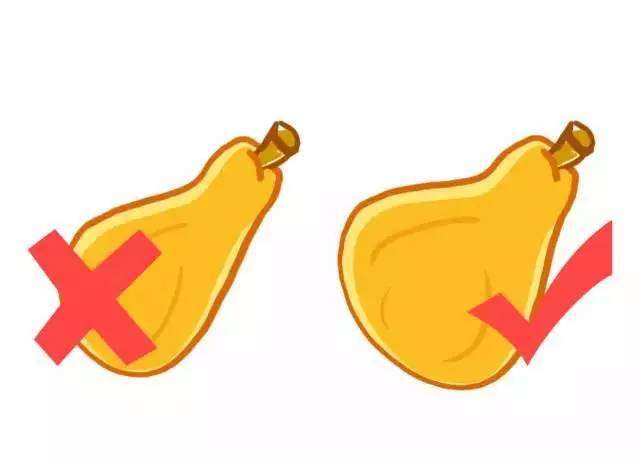
The larger the belly, the sweeter it is!
Durian
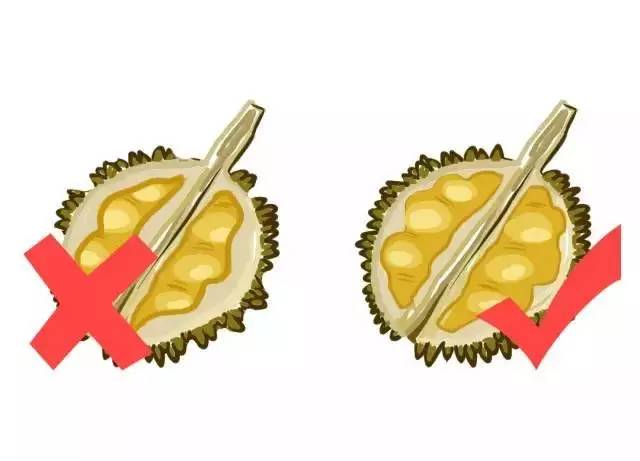
Thinner shells have more flesh,
for the same size, lighter ones have smaller seeds.
The more small hills on the skin, the more flesh there is!
Banana
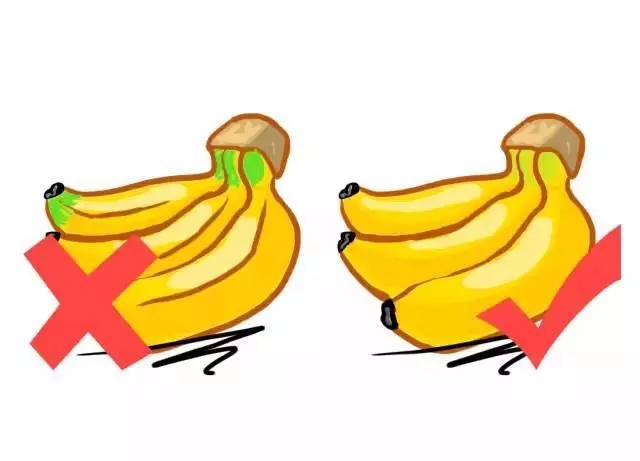
Bananas with green ends are processed,
avoid those with edges!
Mango
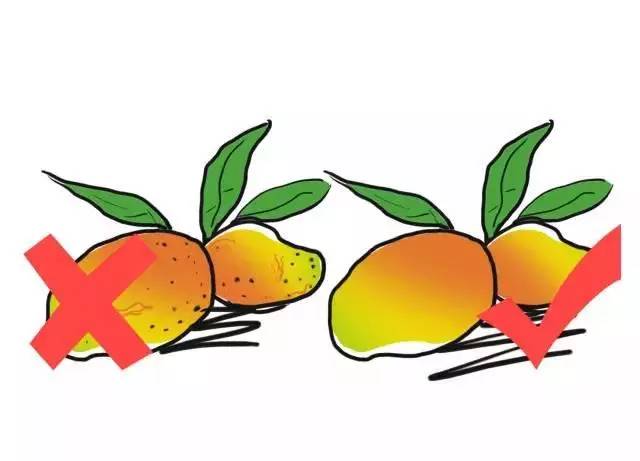
Spots indicate they are rotting from the inside,
The stem should not be wet,
The skin should not be wrinkled~
Hami Melon
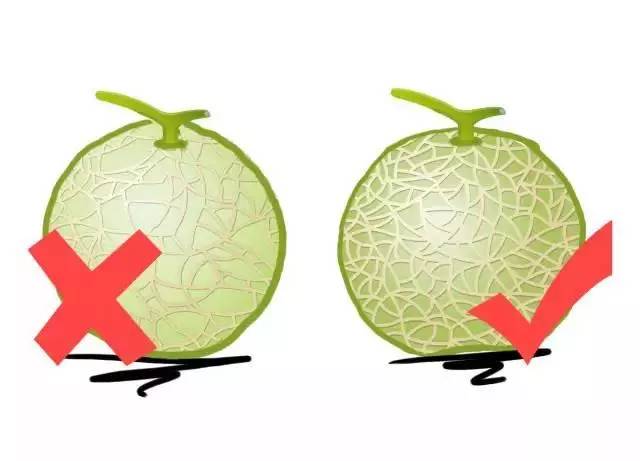
Melons with coarse and dense net patterns are good,
those with a dented bottom are good!
This issue was edited by: Tian Feng, Jiang Bo

If you find this useful, please like it↓↓↓

